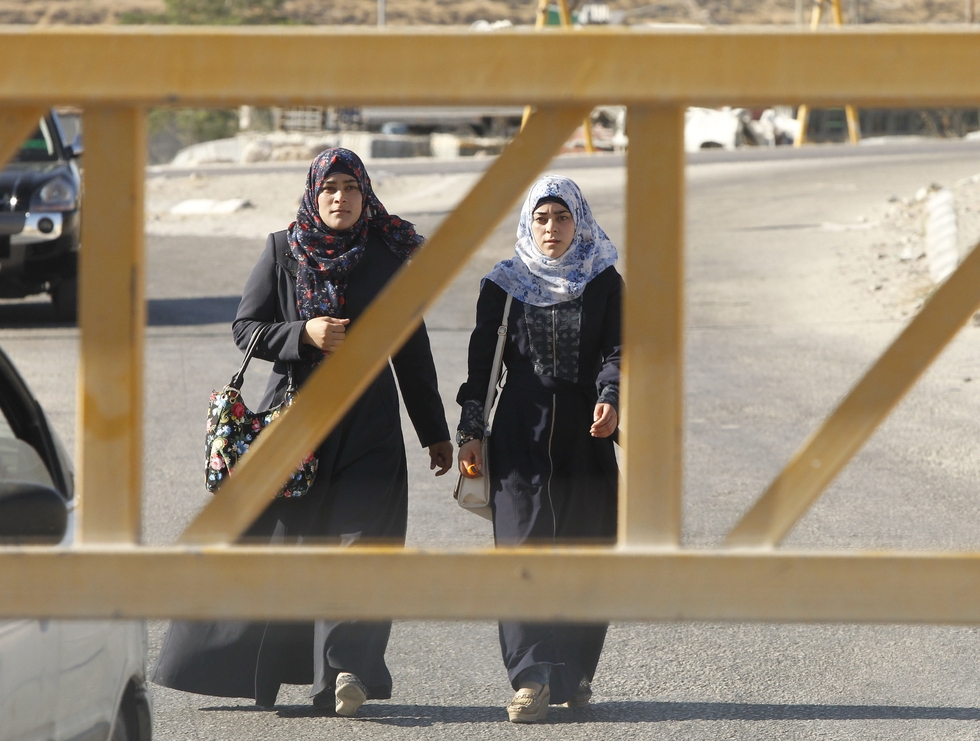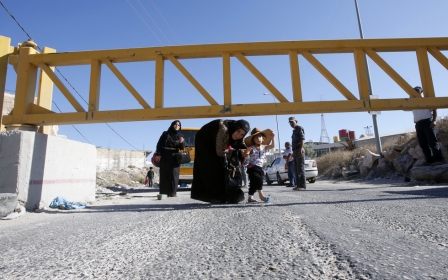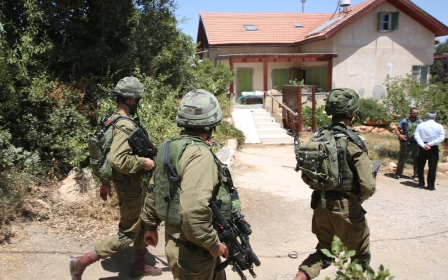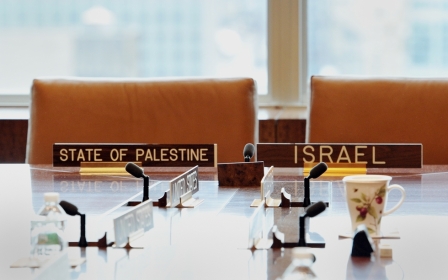Israel announces new West Bank settlement plan as it blockades Hebron

Israeli's prime minister has approved new construction in a West Bank settlement where a 13-year-old was killed in her bedroom, amid growing tension in as the Israeli army closed off and occupied Hebron.
Benjamin Netanyahu on Saturday reopened the tender for construction of 42 units in Kiryat Arba, a process that has been frozen for a year and a half after no contractors applied.
Netanyahu promised to strengthen the settlement during a Friday condolence call to the family of Hillel Yaffa Ariel, who was killed by Mohammed Tra'ayra, 19, on Thursday.
The promise comes after a new round of violence in the West Bank, with two Israelis dead and six wounded in four attacks since Thursday. Two Palestinian attackers have also died.
It also ignores a report by the Middle East diplomatic quartet, which urged Israel to halt all settlement construction in an effort to revive peace talks.
The Israeli army meanwhile on Saturday strengthend its hold on Hebron, the West Bank's largest town, as troops locked gates and set up barriers blocking all access to the city except for a northern passage through the town of Halhul towards Jerusalem.
Units from the elite Golani Brigade have been sent to the city.
The measures were described by Isreali army spokesman Peter Lerner as the "most substantial steps on the ground" since 2014, when Israeli forces carried out a huge search operation in the southern West Bank for three young hitchhikers abducted and later murdered by Palestinian militants.
Overnight on Saturday, Israel bombed four sites in the Gaza Strip, causing damage but no injuries after Palestinian militants fired a rocket that struck a building in southern Israel.
Hisham Sharabati, an activist with the Popular Committee to Defend Hebron, told Middle East Eye that several villages east and south of Hebron had been besieged for days, affecting about 100,000 people.
“The main roads to the villages are closed. Banie Naa'em village is completely besieged. There was one exit that people could use but that was closed this afternoon by the army,” he said.
Sharabati said there were still ways to reach Hebron, but that the restrictions were already making life difficult for residents.
“There are 700,000 living in Hebron, and it would be a catastrophe if it was closed. Those worst affected are those who need to reach hospitals, children and old people,” he said.
Sharabati said Israeli security forces were already conducting raids and arresting people, and some residents were fearful that they could be planning to take military action during next week’s festival of Eid.
“People are waiting to see what will happen. There is a lot of concern about what will happen next,” he said.
The developments came just hours after an Israeli man was killed in a drive-by shooting on Friday afternoon on a road leading to the Israeli settlement of Otniel, just south of Hebron.
Israeli police did not immediately make public whether an attacker had been identified.
Violence also gripped the Qalandia checkpoint on Friday, when a 63-year-old Palestinian man identified as Mohammed Mustafa al-Habash died due to exposure to tear gas and at least 40 others were injured.
Fadi Asmar, a paramedic at the scene, told Middle East Eye that soldiers at the checkpoint prevented an ambulance from entering a terminal to help Habash.
"Had he received medical treatment in time, he would have lived," Asmar said.
Ahmed Bitwai, director of the Ramallah hospital where Habash was taken, said he died from being "directly subjected" to tear gas.
The clashes broke out at the main checkpoint between the West Bank and northern Jerusalem after Israeli authorities prevented Palestinians under the age of 40 from crossing into Jerusalem to pray at al-Aqsa Mosque on the last Friday of the holy fasting month of Ramadan.
In an effort to relieve social pressures, Israeli authorities said on Tuesday that they were closing the al-Aqsa compound to non-Muslim visitors.
The spate of Palestinian attacks is to be discussed by the Israeli security cabinet in an emergency meeting on Saturday evening.
Netanyahu on Friday also said Israel would reduce the amount of tax funds transferred monthly to the Palestinian Authority as part of measures to be taken following the attacks.
"Netanyahu has ordered that the entire amount of support for terrorists and their families be deducted from the tax revenues that Israel transfers monthly to the Palestinian Authority," his office said.
New MEE newsletter: Jerusalem Dispatch
Sign up to get the latest insights and analysis on Israel-Palestine, alongside Turkey Unpacked and other MEE newsletters
Middle East Eye delivers independent and unrivalled coverage and analysis of the Middle East, North Africa and beyond. To learn more about republishing this content and the associated fees, please fill out this form. More about MEE can be found here.




